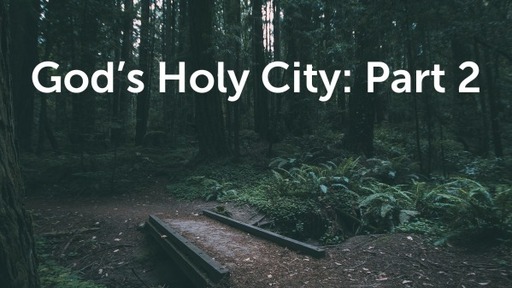God's Holy City: Part 2b

II. Gathering the City
1. Gathered and Hungry (1-4)
If a people are looking for rich sermons from their minister, their prayers must supply him with the needed material; if they seek for faithful sermons, their prayers must urge him, by a full and uncompromising manifestation of the truth, to commend himself to every man’s conscience in the sight of God (see 2 Corinthians 4:2). If God’s people are going to expect powerful and successful sermons, their prayers must make him a blessing to the souls of men!2
2. Gathered and Needy (5-8)
3. Gathered and rejoicing (9-12)
The law works death, and speaks terror, shows men their sins, and their misery and danger because of sin, and thunders a curse against every one that continues not in every part of his duty
4. Gathered and Unified (13-15)
5. Gathered and Obedient (16-18)
The Son does not give his disciples his joy as a discrete package; he shares his joy insofar as they share his obedience, the obedience that willingly faces death to self-interest
